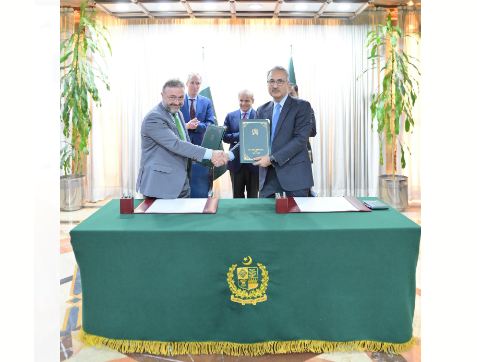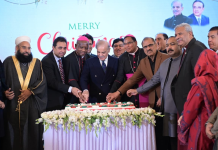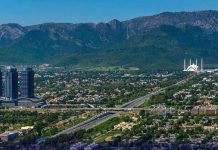ISLAMABAD, MAY 8 /DNA/ – World Bank and Pakistan agree to work on a new robust and ambitious Country Partnership Framework to carry forward reform and development agenda
Mr. Martin Raiser, Regional Vice President of World Bank for South Asia along with a delegation including Country Representative Mr. Najy Benhassine called on Prime Minister Muhammad Shehbaz Sharif in Islamabad today.
Welcoming Mr. Martin Raiser, Prime Minister Shehbaz Sharif lauded the contribution of the World Bank to the development of Pakistan. The Prime Minister appreciated the support extended by the Bank for building climate resilient infrastructure in the wake of 2022 floods in Pakistan. He briefed the delegation on the reform agenda of the Government including digitization of the entire tax system, power sector reform, enhancing per acre yield in the agriculture sector, addressing the issue of child stunting, etc.
Appreciating Pakistan’s aggressive reform agenda, Mr. Martin Raiser said the World Bank is ready to collaborate with Pakistan in its journey of transformation of the economy aimed at sustainable development.
Both sides agreed to engage in a long-term, focused partnership under a new Country Partnership Framework with an annual review mechanism to assess progress and ensure that results are achieved. The strategy will include flexibility for future course correction. The new partnership will have the ambition to achieve transformational impacts over a decade on a selective set of critical development priorities for Pakistan.
The initial set of priorities that were discussed in the meeting included structural economic reforms including domestic resource mobilization, particularly via digitalization and tax policy reforms. Human capital development, specifically addressing child stunting and improving foundational learning was also discussed. Likewise, energy sector reforms, including increased participation of the private sector in transmission and distribution, and transition to green energy to make energy cheaper, cleaner and financially sustainable shall also be agreed. In order to better cope with the increased water scarcity and climate-related shocks, both sides emphasized collaboration in climate adaptation.
For increasing economic opportunities, including in the agriculture sector, Pakistan will benefit from the Bank’s expertise in mobilizing global expertise and best practices, institutional capacity building, leveraging digital transformation and private sector participation, including via the World Bank’s private sector arm, the International Finance Corporation and the Multilateral Investment Guarantee Agency.
Both sides agreed that the process for preparation of the new Country Partnership Framework will consist of consultations with Federal and Provincial governments as well as academia, parliamentarians, civil society, development partners and the private sector. The World Bank will coordinate with stakeholders to discuss the partnership priorities duly aligned with the key development priorities and strategy of the Government of Pakistan.
The Prime Minister witnessed the signing of a joint communique in this respect, signed by the World Bank’s Country Representative Mr. Najy Benhassine and Secretary of Economic Affairs Division Dr. Kazim Niaz.
Minister of Economic Affairs Ahad Khan Cheema, Minister Finance Muhammad Aurangzeb, Minister Petroleum Dr. Musadik Malik, Minister of State for IT Shaza Fatima Khawaja, Deputy Chairman Planning Commission Dr. Jehanzeb Khan and senior officials of the Government of Pakistan also attended the meeting.












